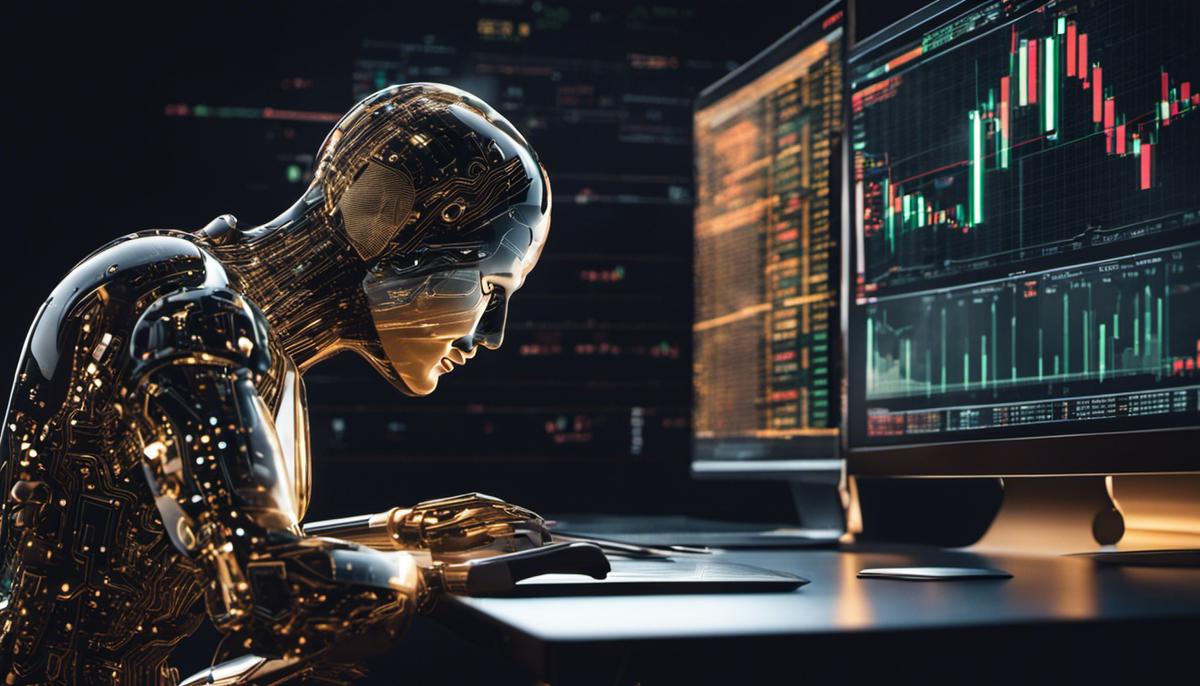AI in Forex Trading: Harnessing the Power of Technology
The realm of forex trading is colored by its fascinating complexity, demanding from participants an intimate understanding of constantly fluctuating markets, economic forces, and geopolitical factors. In response to this challenge, the modern world offers a groundbreaking solution – Artificial Intelligence (AI). By diving deep into the ocean of forex trading, AI has the potential to fundamentally reshape our conventional methodologies, making trading more accurate, efficient, and adaptable. As AI makes its grand entrance into various sectors, including health, retail, and finance, it’s imperative to fathom its role in the sphere of forex trading, demystifying its benefits, understanding its pitfalls, and contemplating its future.
Understanding AI and Forex Trading
Understanding Artificial Intelligence (AI)
Artificial Intelligence (AI) is an area of computer science that emphasizes the creation of intelligent machines that react and work like humans. It is a pivotal technology in the current digital age, transforming various industries including healthcare, finance, entertainment, and transportation. AI’s capabilities include learning, reasoning, problem-solving, perception, and language comprehension, which make it well-suited for tasks that are complex for human intellect.
A Glimpse at Forex Trading
Forex, short for foreign exchange, trading entails the conversion of one currency into another. This market is known as one of the most liquid and volatile financial markets with an average daily trading volume crossing $5 trillion. Trading in forex involves predicting the future direction of currency price movements based on economic indicators, market news, and currency price charts. Despite high liquidity, the market’s complexity and volatility require exceptional skills and knowledge. Traders need to understand the global economy, national and international politics, and different trading strategies to navigate the system successfully.
AI in Forex Trading
The complexity of forex trading has made it a suitable field for AI applications. AI can process large amounts of data at speed, which helps traders make faster, more accurate decisions. AI algorithms can analyze market trends and economic news that directly affect forex prices, providing real-time insights and predictive analytics that translate to effective trading strategies.
AI forex trading bots, which are automated systems that conduct trades on behalf of the user, have also become increasingly popular. These bots use machine learning algorithms to understand market patterns, make predictions, and execute trades. They can operate 24/7, respond to market changes in real-time and improve their performance over time through learning.
The Need for AI in Forex Trading
AI’s ability to analyze vast amounts of data quickly and efficiently makes it ideal for forex trading. The nature of the forex market is such that information is continually flooding in from various sources. These could be economic announcements, political developments, or even market sentiments expressed on social media. AI programs can sift through these disparate data sets and highlight pertinent information almost instantly. This is a capacity far beyond what a human could realistically manage.
Moreover, AI reduces the risk of human errors and emotional decisions, which are common setbacks in trading. With AI, decisions are data-driven and devoid of psychological influences, leading to an enhanced level of consistency in trading outcomes.
As concluding thoughts, it’s imperative to note that AI’s presence in forex trading is shifting from being an added advantage to becoming an indispensable tool. Traders stand to gain immensely from this transformative technology, if they can understand its operation and leverage its potential optimally. In advancing the future of forex trading, AI assures improved efficiency, precision, and profitability.
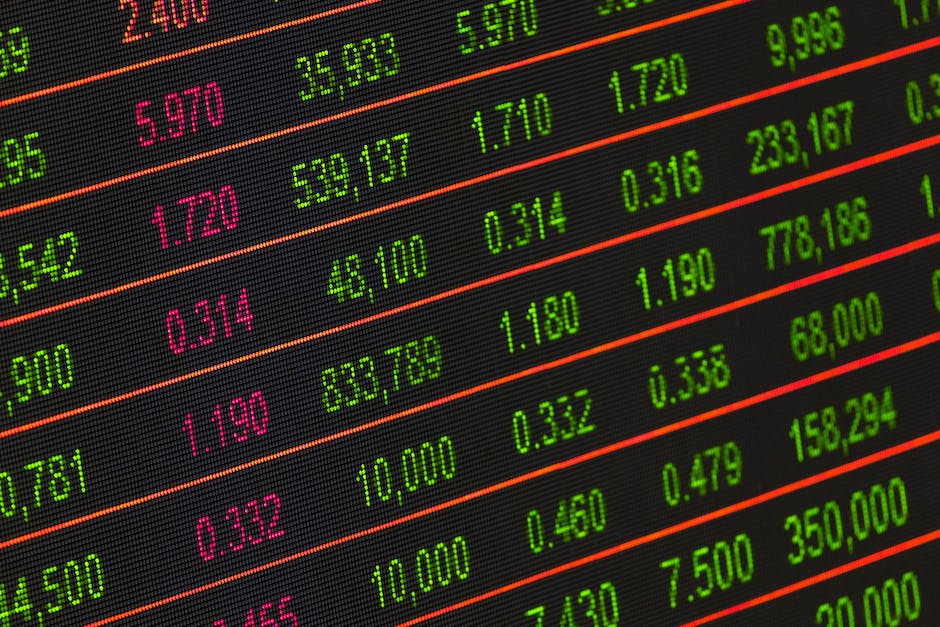
The Role of AI in Forex Trading
Embracing the Modern: AI’s Role in Forex Trading
Often shortened as AI, Artificial Intelligence has brought about significant changes in various sectors, with forex trading being a notable example. In this realm, AI’s contributions range from automated detection of market trends, swift execution of trades, and market scenario predictions, to risk management.
Automatic Detection of Trends
In the realm of forex trading, trend detection is paramount. Market trends denote the direction in which a currency pair is headed, and accurately identifying these trends can aid traders in making advantageous transactions. AI has shown great efficiency in automatically detecting these trends. Advanced algorithms in AI systems can monitor multiple parameters simultaneously and extract meaningful patterns in real time. This ability spans over long and short time scales alike, meaning AI can adjust to rapid market fluctuations as well as slowly evolving trends.
Predicting Market Situations
AI’s predictive abilities are a step forward in the forex trading landscape. Traditionally, traders have relied on historical data and manual analysis to forecast market situations. However, AI has the capability to simplify this process and increase the accuracy of predictions. Machine Learning (ML), a subset of AI, enables systems to learn from data patterns, refine their models, and improve prediction accuracy over time. Additionally, Natural Language Processing (NLP), another AI subset, can analyze news, economic indicators, and social media feeds to gauge public sentiment and anticipate market shifts. These predictive capabilities can give traders the upper hand in spotting opportunities before they become apparent to the market at large.
Instant Execution of Trades
AI’s ability to instantly execute trades is a significant advantage in forex trading, a realm where speed can be the difference between profit and loss. Manual order placements, no matter how swift, can’t match the speed of AI trade execution. AI can process large volumes of data and execute deals within milliseconds, a near-impossible feat for human traders. Such speed ensures optimal execution prices and improves profit-making chances.
Risk Management in Forex Trading
AI also plays a vital role in risk management, mainly through its predictive analytics capabilities. AI can provide traders with real-time information, help them understand potential implications, and assist in making informed decisions. It can identify potentially risky scenarios or decisions based on historical trends and provide alternatives with reduced risk. Also, algorithmic trading, powered by AI, ensures that predetermined risk management rules are strictly adhered to. This limits losses and prevents irrational decision-making due to emotional factors, thus maintaining a disciplined approach to trading.
AI Systems and Their Effectiveness
The effectiveness of AI systems in forex trading is visible in the ventures of several fintech companies. Companies like Alpaca, which offers an AI-powered platform for forex trading, have paved the way for a new breed of traders. With its AI algorithms, Alpaca’s platform can manage multiple forex trades simultaneously, adapt to the volatility of the forex market, execute high-frequency trading, and apply diverse trading strategies. Similarly, Mov37’s Autonomous Learning Investment Strategies (ALIS) leverage machine learning to develop autonomous trading systems that evolve with the market.
As we venture further into the digital age, it’s evident that Artificial Intelligence (AI) is shaping a dynamic path in numerous sectors, particularly in forex trading. This transformation offers traders amazing tools and opportunities. Therefore, it’s reasonable to predict that AI will become an increasingly integral part of this trading realm.
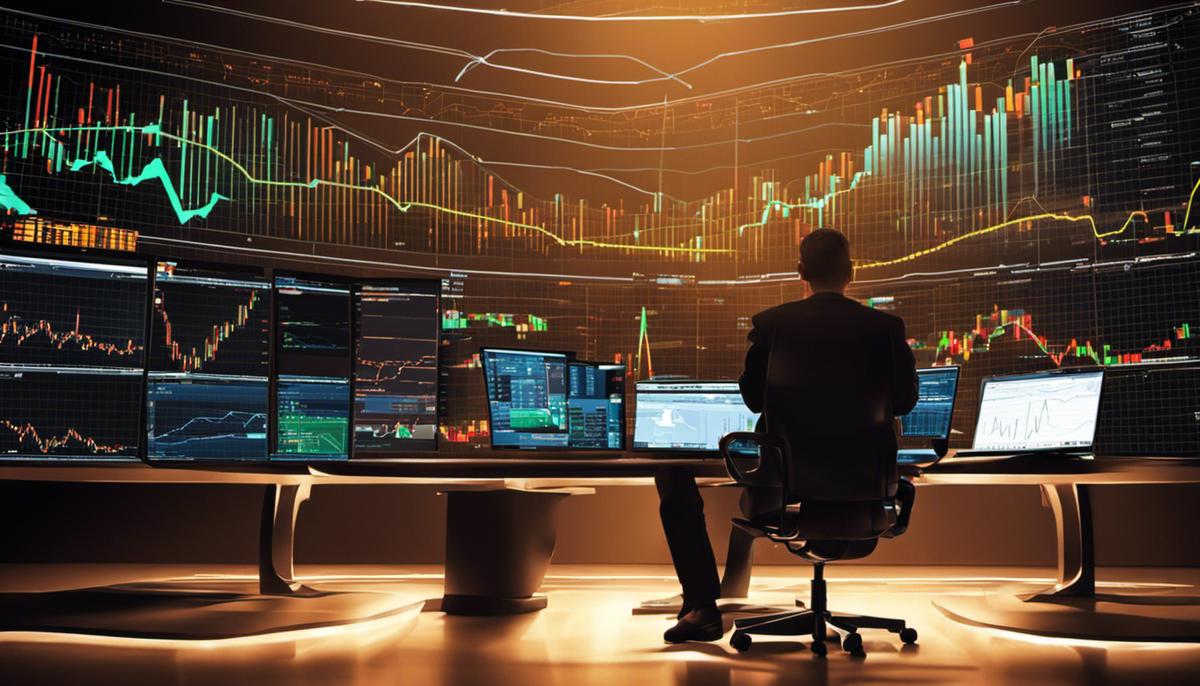
Benefits of Using AI in Forex Trading
Enhancing Accuracy in Forex Trading
Advancements in AI have added significant precision to forex trading, unlike before, when trade decisions primarily relied on human analysis that naturally harbored biases and inaccuracies. AI’s prowess in analyzing vast amounts of data with exceptional precision has managed to change this narrative. Citing an example, we can look at J.P. Morgan’s LOXM’s complex AI algorithms that execute trades at the most opportune prices and times, which minimizes risks and maximizes returns they offer traders.
Efficiency in Forex Trading
AI also enhances the efficiency of forex trading. Traditionally, forex trading required constant human monitoring to make beneficial deals. AI, on the other hand, can work 24/7 without fatigue, making it possible to capitalize on opportunities in different time zones. Forex platforms like AlgoTrader use AI-driven trading strategies that can process trades faster than any human, leading to more efficient trading and increased profit margins.
Time-saving in Forex Trading
Time-saving is another significant benefit associated with using AI in forex trading. Before AI, traders spent countless hours analyzing charts, interpreting news, and predicting market trends. Today, AI does all these tasks much faster, freeing up time for traders to focus on strategy and decision-making. A notable example is the AI Forex Robot, which automates the entire trading process, thereby giving traders more time to do other important tasks.
Data Analysis Capabilities
The data analysis capabilities of AI have elevated forex trading to new heights. AI can analyze large amounts of data and extract relevant information to inform trading decisions. This is not only limited to past forex trading data but can also include other relevant information like economic indicators or news events. AI tools like MetaTrader 4 expert advisors use machine learning algorithms to make intelligent trading decisions based on real-time and historical data.
Risk Management in Forex Trading
Risk management is crucial in forex trading, and here too, AI comes in handy. AI can predict market trends by analyzing past and current data, enabling traders to make informed decisions and avoid potentially risky trades. Forex trading platforms like Zulu Trade use AI to manage risk by automatically adjusting trades based on market fluctuations.
AI and Profit Maximization in Forex Trading
Artificial Intelligence (AI) has become a vital tool in realizing optimal returns in forex trading. By employing AI, traders have the capability to forecast market trends, pinpoint profitable trading prospects, and execute lucrative trades. An illustration of this is AI-powered forex trading applications offered by firms such as Trade Ideas. This tool is engineered to detect trades with high potential profits based on pre-set profitable factors.
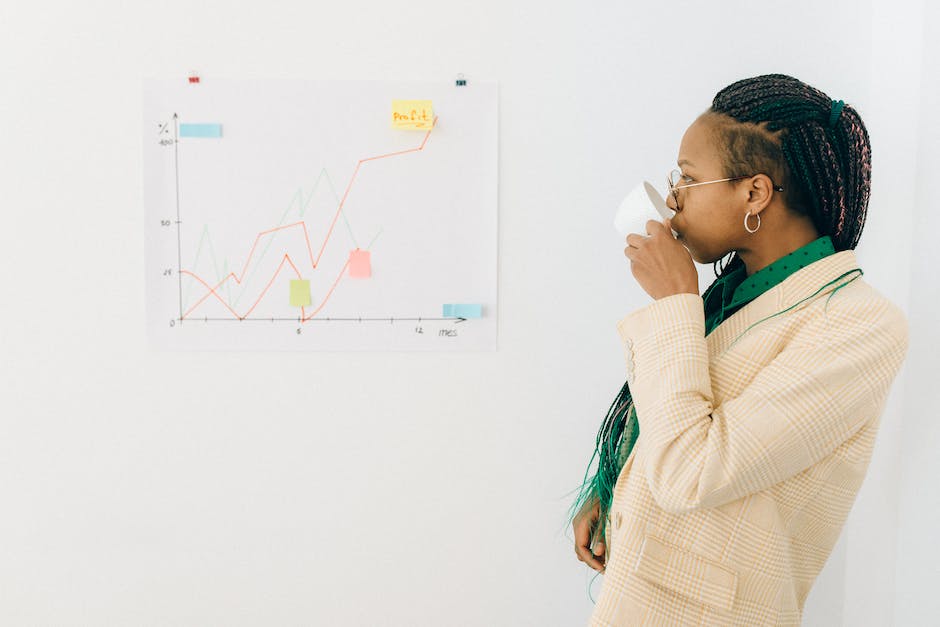
Drawbacks and Challenges of AI in Forex Trading
Potential Technical Hurdles in AI Forex Trading
Despite the advantages, AI technologies are not exempt from technical hiccups. Like any other technological tool, they are susceptible to challenges like system crashes or network failures. In a forex market characterized by volatility and rapid changes, an unforeseen system glitch could lead to considerable financial losses. Traders might also encounter issues resulting from incorrect predictions or anomalies in data interpretation precipitated by coding errors or software algorithm defects. In worst-case scenarios, these glitches could obliterate a trader’s entire investment within mere seconds. Thus, the importance of consistent maintenance, patching, and testing is emphasized to ensure the reliability of AI platforms and lessen the chance of such breakdowns.
High Cost of AI Systems
Investing in AI forex trading systems can be costly. Many advanced AI trading platforms require substantial investment due to the complex algorithms and machine learning techniques they utilize. The costs may include the initial purchase of the system, periodic software updates, and potential subscription fees for ongoing use or premium features. Additionally, there is the expense associated with training and skills acquisition, as traders must learn how to effectively use and interpret the AI system’s data outputs. Traders need to be aware of the potential for hidden costs or escalating fees, as the terms of use and pricing models may vary greatly from one AI trading platform to another.
Over-reliance on Technology
While using AI systems for forex trading enhances efficiency and accuracy, over-reliance on this technology comes with its own demerits. Excessive dependence on AI could lead to a lack of fundamental human judgment necessary in response to complex or unforeseen market scenarios. Machine learning algorithms are based on historical data, and may fail to accurately predict market trends affected by unprecedented events or phenomena beyond the dataset’s scope. AI algorithms can’t incorporate qualitative factors, such as political disruption or a sudden change in government policy, in their analysis that can drastically impact the forex market.
Algorithmic Biases in AI Trading
AI systems operate on data algorithms, which run the risk of being biased due in part to the exclusion or over-representation of certain data. Algorithmic bias can skew AI-driven forex trading systems’ predictions and output, leading to false market trends and potentially resulting in financial losses. Checking for algorithmic bias, usually coming from the historical trading data used, is of vital importance in maintaining the accuracy and reliability of AI trading systems.
Being Mindful of Security and Privacy
Just like any person-made system, AI practices in forex trading also come with their fair share of vulnerabilities, such as exposure to security threats and possible data breaches. These breaches, if they occur, can lead to a potential exposure of sensitive data, including details of financial transactions and well-structured trading strategies. Therefore, it’s of utmost importance for the traders wishing to avail of AI for their forex trading to ensure that a firm cybersecurity infrastructure stands as a guard against these potential cyber threats.
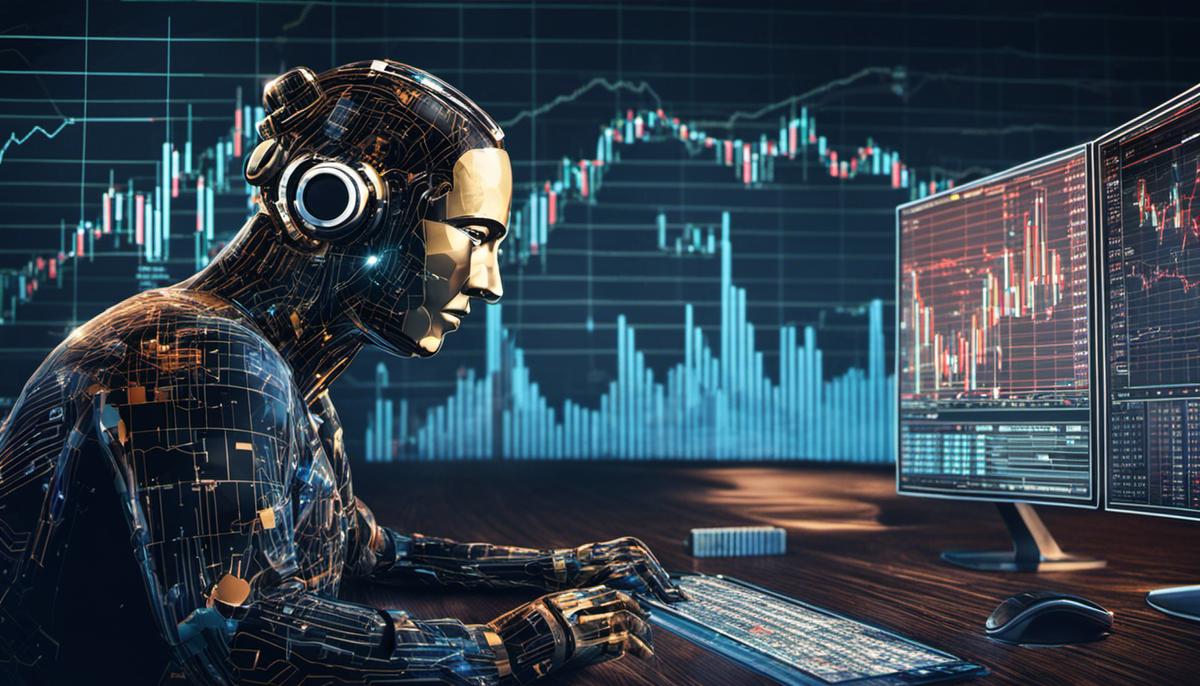
Future of AI in Forex Trading
The Evolving Role of AI in Forex Trading
Gone are the days when Artificial Intelligence (AI) was merely a vision of the future. Today, it is central to forex trading and has been dominating the sphere for several years. Algorithms and machine learning models—the major players of AI—are being utilized to optimize decision-making processes, streamline trading activities, and forecast future trends with a degree of accuracy that was once unimaginable. The growing dominance of AI has resulted in a significant increase in efficiency, and reduction in human-related errors, and has maximized profit margins, thereby revolutionizing forex trading in its entirety.
Artificial Intelligence and Algorithmic Trading
AI’s application in algorithmic trading has been transformative. Algorithmic trading implies using highly sophisticated AI models to make critical decisions on trading based on market behavior. This strategic application of AI can analyze colossal amounts of financial data in real time, perform trend analysis, and thus forecast market trends. Traders have found this immensely beneficial in predicting market volatility and determining the right time for currency trading. The accelerated pace and accuracy provided by AI will continue to reshape forex trading in the future.
Predictive Analytics and Trading Bots
AI in combination with Big Data evolves predictive analytics that has become an integral part of forex trading. Predictive analytics involves AI models processing gigantic datasets to identify recurring patterns and forecast future trends. AI trading bots take this a notch further by automating the trading process and using predictive analytics to execute successful trades. This user-friendly approach and elimination of the requirement for human intervention will undoubtedly architect the future of trading.
AI Enhancing Risk Management and Fraud Detection
Risk management is a critical aspect of any form of trading, and AI proves invaluable in this aspect. AI can give traders insights into risk factors in trading situations, allowing for more informed decision-making. Alongside risk management, fraud detection is another area where AI will have a tremendous impact in the future. Advanced algorithms can pick up irregularities and fraudulent behaviors in real time, enabling effective prevention methods.
Expert Opinions and Emerging Tools
Forex trading experts believe that AI will further revolutionize the trading ecosystem, making it more efficient and profitable. They expect the development of more sophisticated AI tools and models focusing on more accurate predictions, better risk management, and fraud prevention. AI interventions will continue to make forex trading more accessible to various population groups.
Case Study: Deep Learning and Forex Trading
A case study that validates AI’s transformative impact on forex trading involves the use of Deep Learning technology. Deep Learning, a subset of Machine Learning, has proved efficacious in predicting forex rates with an accuracy rate of up to 98 percent. The availability of high-frequency data aggregation makes Forex a perfect fit for this kind of AI model. This is a clear indication that AI implementation in Forex trading will not only persist but will lead the way for more advanced technological innovation.
In conclusion, the future of Forex trading lies in the hands of AI
The advanced capabilities that AI and machine learning offer have already proven their merit in the world of Forex trading, and pundits predict that these technologies will continue to evolve, enhance, and revolutionize the trading world.
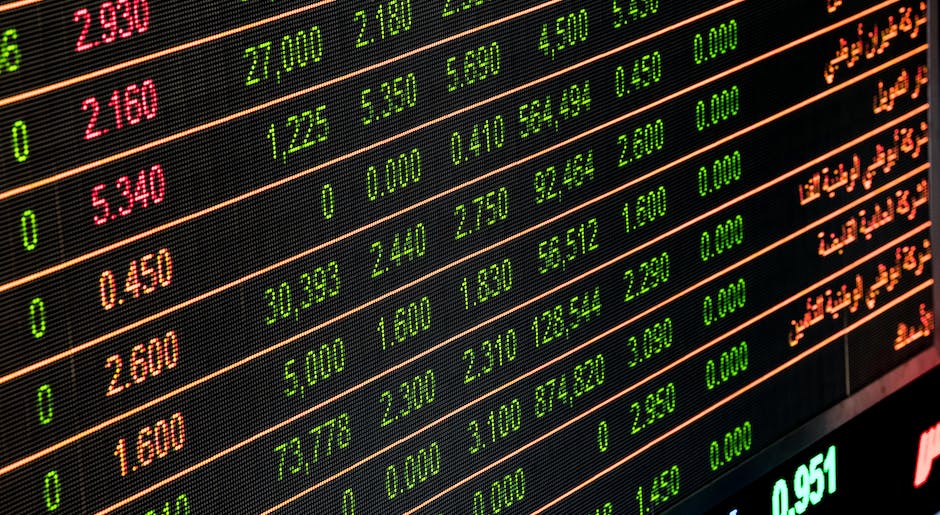
The journey of AI in forex trading is just beginning, and as with any beginning, it’s filled with a mix of promising possibilities and daunting challenges. Nevertheless, the potential it holds is incredible. As we continue to refine and evolve AI technology, the ability to surmount these obstacles becomes increasingly likely, continually reshaping our perception of what’s possible. Amidst the inevitable rise and fall of markets, the perpetual learning and adaptability of AI stand as a beacon promising a future where forex trading is not just about survival but sailing smoothly even in the roughest of waters. Highlighting the role of AI in Forex trading, and understanding its implications, both positive and negative, allows us to plan, prepare, and harness these tides of change, illuminating the path forward.

